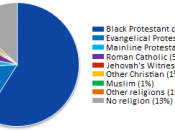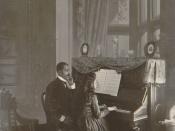"An exploration of the Effects of Skin tone on African American Life Experiences" was an article that explored the experiences that people have had with the issue of skin tone. Thirty seven African American Adults from ages 19 to 78 with incomes ranging from $14,999- $100,00 completed a survey packet, completed a self-esteem test, as well as various other tests dealing with skin tone perceptions. The results concluded that the effects of skin tones on African Americans are significant.
The issue of color consciousness has been prevalent in not only the African American culture, but the Hispanic and Asian American cultures as well. Though the issue has been explored within the African American culture, the results have been scarce. Researchers broadened information regarding this topic by qualitatively gathering data by asking individuals direct questions about their life experiences with the issue of skin tone. The areas that have been researched in the past, as well as in this study have been focused on the areas within color consciousness including "socioeconomic status, ethnic identity, and self esteem."(Breland,
2001 )
Lawrence Otis, author of Our Kind of People wrote about the "importance of skin tone and socioeconomic status"( Breland, 2001) The history of class distinctions in the African American culture began when European male began to produce off spring with enslaved
African women to produced bi-racial children with lighter skin tones than their fully- African counterparts. These lighter African Americans became to be known as house
slaves who did most of their labor within the home compared to the darker Africans, field slaves, who were forced to work outside under more extreme conditions. The house slaves received privileges for their skin tones including "opportunities for education, housing, clothing, and other basic necessities". After slaver was abolished these lighter African Americans...


